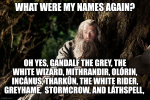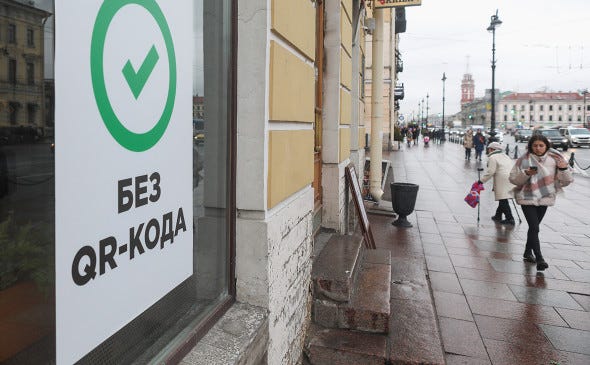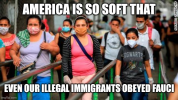This is an incredible book, and does not fit into any standard category. It is a history of the Napoleonic wars in 1805 - 1813, but told from the perspective of the common man (the soldier in the thick of the action), with the ultimate aim of answering the very difficult question "why did hundreds of thousands of Christian men kill each other?".
The actions of the upper leadership of the nations involved (mostly France and Russia, but also Austria and Prussia), and the progress of the wars, major actions etc, are carefully researched accurate history. Every word said by an actual historical figure is quoted verbatim from a historical source.
However, the story is told from the perspective of regular people in the actual armies. The histories of such people are not recorded in detail. So the main characters of the story are fictitious. The author's father fought in these wars, he interviewed many others who fought in them, and himself participated in the later Crimean war, so from all this he was able to get an accurate picture of what it would have been like for people at the time. Each major battle is described through the eyes of somebody who is actually on the ground, during the action.
The focus of the story is to look at how it affects these individual people. The title, "War and Peace", reflects the fact that in the years covered, some years were at war and some were at peace. The lives of these individuals are followed through peacetime and war - a good third of the book is romance, romances that are followed through great trials and sometimes even death. This means we get a fascinating view of Russian feudal society in the early 19th century. The author was an excellent observer of people, and portrays people of quite different personalities and how they are changed by the experiences they go through over these years.
The main characters are in the lower nobility, so in peacetime they directly interact with everyone from peasents to royalty, illustrating the whole society. While in war, such people end up as junior officers - in the thick of the action commanding small units of men, but also with some interaction with the key leaders, once again giving an overview of the entire action.
But the story is just a setting in which to ask more fundamental questions. Who actually caused these wars? Why could one little man, Napoleon, tell 600,000 Christian men to go to war against other Christians, and have them actually obey him? What is power? How do leaders rise to power? Does a leader have their own power that they exert over the people, or do the people have a general will to do something and a leader arises who embodies that general will and leads the people to do what, on some level, they all already want to do? What drives history? What determines who will win a war? What level of control does a military commander really have, given no plan survives first contact with the enemy? The questions explored are wide-ranging, and deeply thought-provoking.
Over a hundred years before the Milgram experiments, Tolstoy comes to the same conclusions - that when people do something because they were ordered to do it, they do not feel responsible for it. Military structure involves a division of responsibility - the people doing the killing do not feel responsible for it (as they were just obeying orders), so do it. And the people giving the orders are removed from the actual killing, so also don't feel responsible. Tolstoy explores the nuances of this in great detail.
It all comes back to one overarching question - to what extent do we have free will, and to what extent are our actions and even thoughts predetermined and driven by external forces?
Finally - where does God fit into this? This is a very Christian book. Main characters go through very different story arcs, but ultimately find that a simple faith in Jesus is the thing that gives meaning to life, and allows them to cope with trials. Although the majority of the religion in the book is Orthodox Christianity (there are also Catholics, Protestants and Freemasons), and there is considerable Orthodox ritual involved in people's practice of their faith, fundamentally it is simplicity of faith in God that is prized above all ritual.
I cannot recommend this book highly enough.
It is
- An accurate history.
- A series of gripping, interlinking personal stories (romance and the trials of life).
- A treatise on philosophy, psychology, political science and religion - made accessible through all questions being placed in the context of a gripping story.
To fit that all in, the book is enormous. My copy is almost 1000 pages of fine print. That is because it's basically several books rolled into one. Every page is gripping however, once you start you won't want to put it down until the end.
Sadly it has nothing to do with polygamy, except that had one character been polygamous one poor lady would not have ended up a spinster, and through a good part of the story I was thinking "just take both of them, isn't it obvious?". But the characters wouldn't listen to me.
The actions of the upper leadership of the nations involved (mostly France and Russia, but also Austria and Prussia), and the progress of the wars, major actions etc, are carefully researched accurate history. Every word said by an actual historical figure is quoted verbatim from a historical source.
However, the story is told from the perspective of regular people in the actual armies. The histories of such people are not recorded in detail. So the main characters of the story are fictitious. The author's father fought in these wars, he interviewed many others who fought in them, and himself participated in the later Crimean war, so from all this he was able to get an accurate picture of what it would have been like for people at the time. Each major battle is described through the eyes of somebody who is actually on the ground, during the action.
The focus of the story is to look at how it affects these individual people. The title, "War and Peace", reflects the fact that in the years covered, some years were at war and some were at peace. The lives of these individuals are followed through peacetime and war - a good third of the book is romance, romances that are followed through great trials and sometimes even death. This means we get a fascinating view of Russian feudal society in the early 19th century. The author was an excellent observer of people, and portrays people of quite different personalities and how they are changed by the experiences they go through over these years.
The main characters are in the lower nobility, so in peacetime they directly interact with everyone from peasents to royalty, illustrating the whole society. While in war, such people end up as junior officers - in the thick of the action commanding small units of men, but also with some interaction with the key leaders, once again giving an overview of the entire action.
But the story is just a setting in which to ask more fundamental questions. Who actually caused these wars? Why could one little man, Napoleon, tell 600,000 Christian men to go to war against other Christians, and have them actually obey him? What is power? How do leaders rise to power? Does a leader have their own power that they exert over the people, or do the people have a general will to do something and a leader arises who embodies that general will and leads the people to do what, on some level, they all already want to do? What drives history? What determines who will win a war? What level of control does a military commander really have, given no plan survives first contact with the enemy? The questions explored are wide-ranging, and deeply thought-provoking.
Over a hundred years before the Milgram experiments, Tolstoy comes to the same conclusions - that when people do something because they were ordered to do it, they do not feel responsible for it. Military structure involves a division of responsibility - the people doing the killing do not feel responsible for it (as they were just obeying orders), so do it. And the people giving the orders are removed from the actual killing, so also don't feel responsible. Tolstoy explores the nuances of this in great detail.
It all comes back to one overarching question - to what extent do we have free will, and to what extent are our actions and even thoughts predetermined and driven by external forces?
Finally - where does God fit into this? This is a very Christian book. Main characters go through very different story arcs, but ultimately find that a simple faith in Jesus is the thing that gives meaning to life, and allows them to cope with trials. Although the majority of the religion in the book is Orthodox Christianity (there are also Catholics, Protestants and Freemasons), and there is considerable Orthodox ritual involved in people's practice of their faith, fundamentally it is simplicity of faith in God that is prized above all ritual.
I cannot recommend this book highly enough.
It is
- An accurate history.
- A series of gripping, interlinking personal stories (romance and the trials of life).
- A treatise on philosophy, psychology, political science and religion - made accessible through all questions being placed in the context of a gripping story.
To fit that all in, the book is enormous. My copy is almost 1000 pages of fine print. That is because it's basically several books rolled into one. Every page is gripping however, once you start you won't want to put it down until the end.
Sadly it has nothing to do with polygamy, except that had one character been polygamous one poor lady would not have ended up a spinster, and through a good part of the story I was thinking "just take both of them, isn't it obvious?". But the characters wouldn't listen to me.



